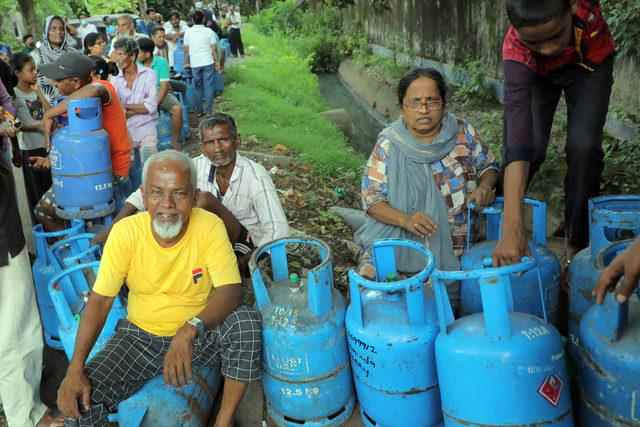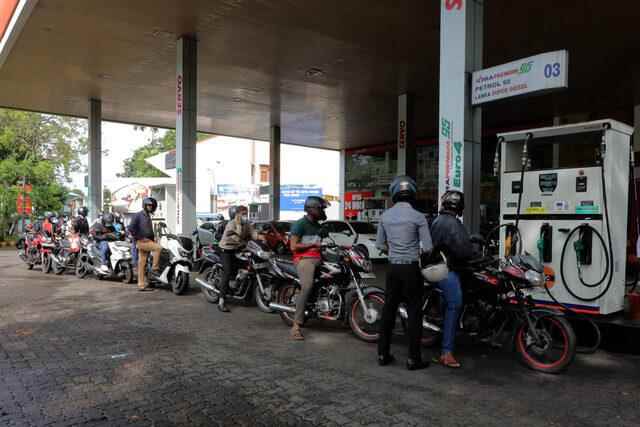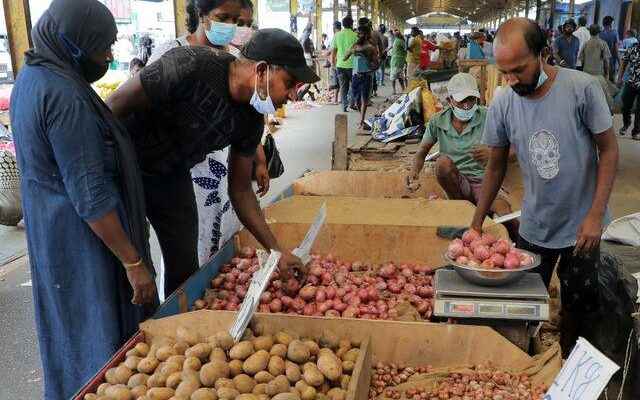In Sri Lanka, which is struggling with the biggest economic crisis in its history, Prime Minister Ranil Wickremesinghe warned that there may be food shortages. According to the news of the Times of India, Wickremesinghe made evaluations on the subject on his Twitter account. Pointing to the food shortages the country is facing, Wickremesinghe said: “I urge everyone to acknowledge the seriousness of the situation.” used the phrase.
“ALL MEASURES WILL BE TAKEN”
Promising that more fertilizer will be purchased next year to increase agricultural production, Wickremesinghe shared, “There may not be enough time for fertilizer supply for the May-August harvest period, but all measures will be taken to ensure sufficient stocks for the September-March period.” made statements.
THE FUEL IS NOT ENOUGH, SCHOOLS ARE CLOSED
All schools are closed today due to the growing fuel shortage in Sri Lanka. Thousands of people across the country have been waiting in fuel lines at gas stations for days. Sri Lanka went into default yesterday, for the first time, by failing to pay its due debt.
Central Bank Governor Nandalal Weerasinghe announced that the amount of foreign currency that individuals can hold in their hands will be reduced from 15,000 to 10 thousand dollars.

“WE DIE WITHOUT FOOD, THIS WILL HAPPEN ONE PERCENT PERCENT”
In Sri Lanka, it is stated that food shortages may occur in a short time, while the supply of oil and petroleum products, as well as kitchen tube supply, is disrupted.
The decision of President Gotabaya Rajapaksa’s administration to ban all chemical fertilizers in 2021 is seen as the most important factor in the production of important agricultural products such as rice, while also hitting the agriculture sector, although it was later corrected.
While inflation continues to climb in the country, prices, especially for imported products, are increasing rapidly. Of these, the price of the kitchen tube increased from about $ 8 in April to $ 14 in May.

“WITHIN TWO MONTHS…”
APD Sumanavathi, a 60-year-old woman who owns a market in the capital Colombo, said about the food shortage in the country, “There’s no point in talking about how hard life is (in Sri Lanka). I can’t predict how things will go in two months, we may not even be here.” she said.
Mohammad Shazly, a part-time driver, emphasized that he has been waiting in the tube queue for 3 days, “500 people are in line, but only 200 cylinders came. We cannot do anything without gas and oil. We will die without food, and this will happen one hundred percent.” made its assessment.
On the other hand, although the Central Bank of Sri Lanka announced yesterday that it has provided loans from the World Bank for the continuation of oil and kitchen tube shipments, the supply has not changed yet.
9 NEW MINISTERS APPOINTED
President Rajapaksa appointed new ministers to 9 ministries, including important ministries such as health, trade and tourism.
It was reported that the new ministers, including names from the opposition, were sworn in at Rajapaksa’s residence in Colombo.
WHAT HAPPENED IN SRI LANKA?
In Sri Lanka, which is facing the biggest economic crisis in its history, the protests intensified at the end of March after power cuts found 13 hours a day.
There was a clash between the demonstrators gathered around the Prime Minister’s Office and the supporters of the government in the country on May 9, and military units were called to duty in the capital Colombo.
After increasing pressure from the opposition, Prime Minister Mahinda Rajapaksa resigned on 9 May. The cabinet was dissolved due to the resignation of the Prime Minister.
Sri Lankan President Gotabaya Rajapaksa appointed Ranil Wickremesinghe prime minister on 12 May. Wickremesinghe previously served three terms as prime minister in the country.
After the violence, a nationwide curfew was declared, and the government ordered that anyone who harmed public property or others during the protests be shot at.
In the protests that spread across the country, 8 people, including the ruling party deputy and 2 police officers, lost their lives and 250 people were injured.
Sri Lankans are currently struggling with fuel shortages, power cuts and rising food and transport prices. (AA)
